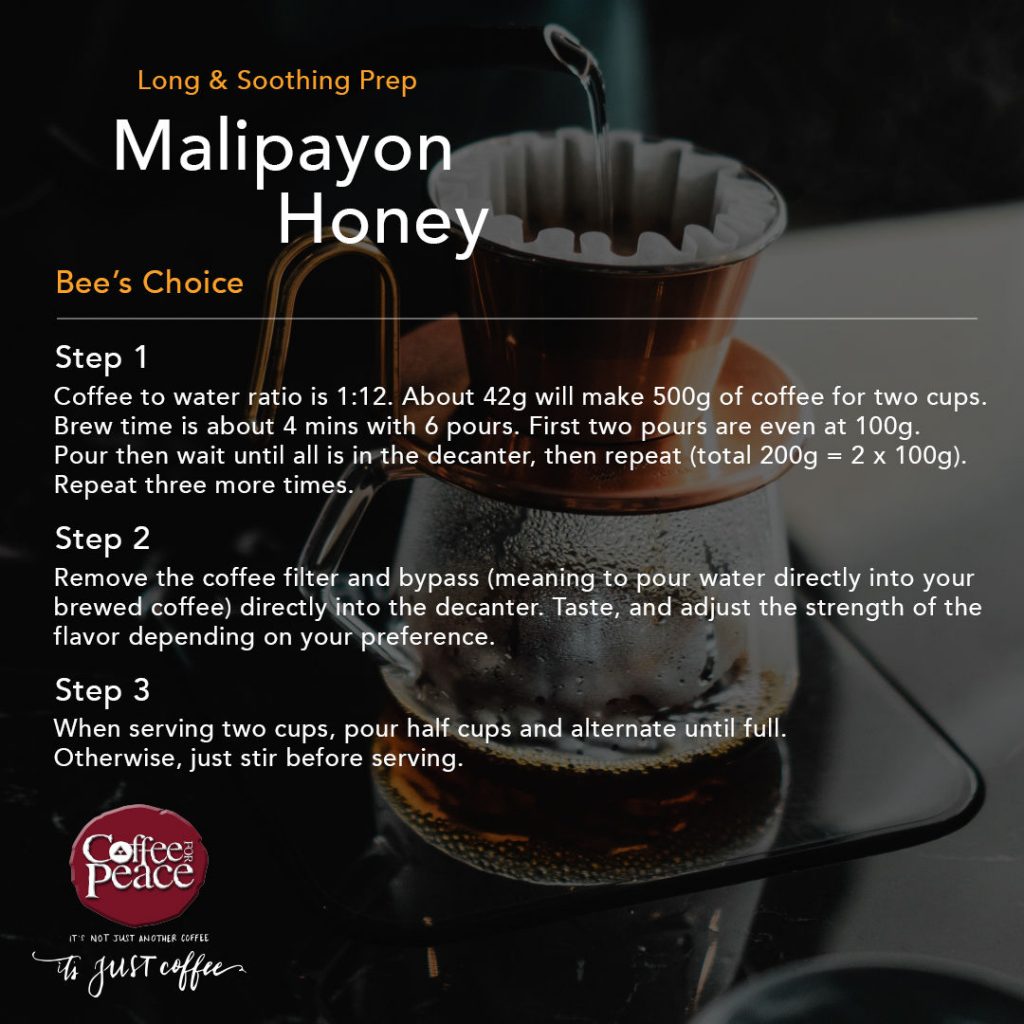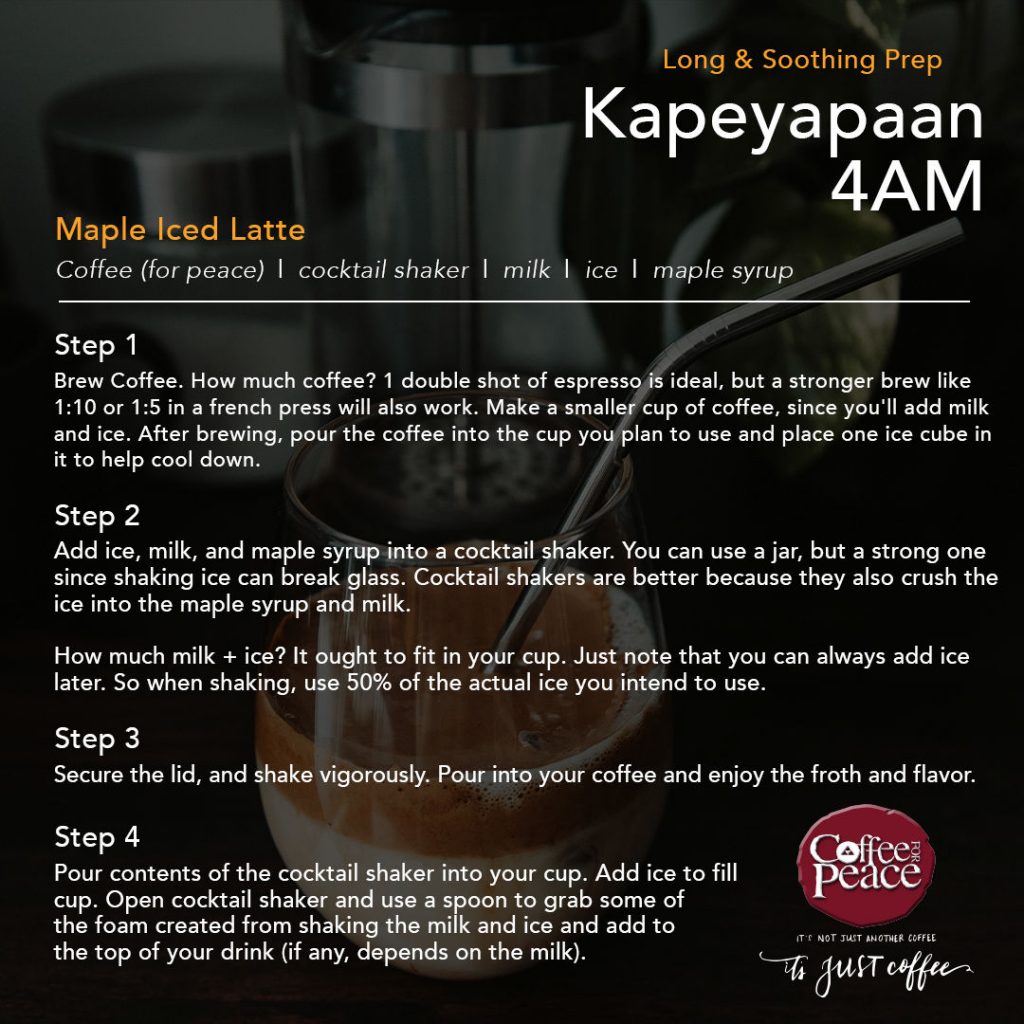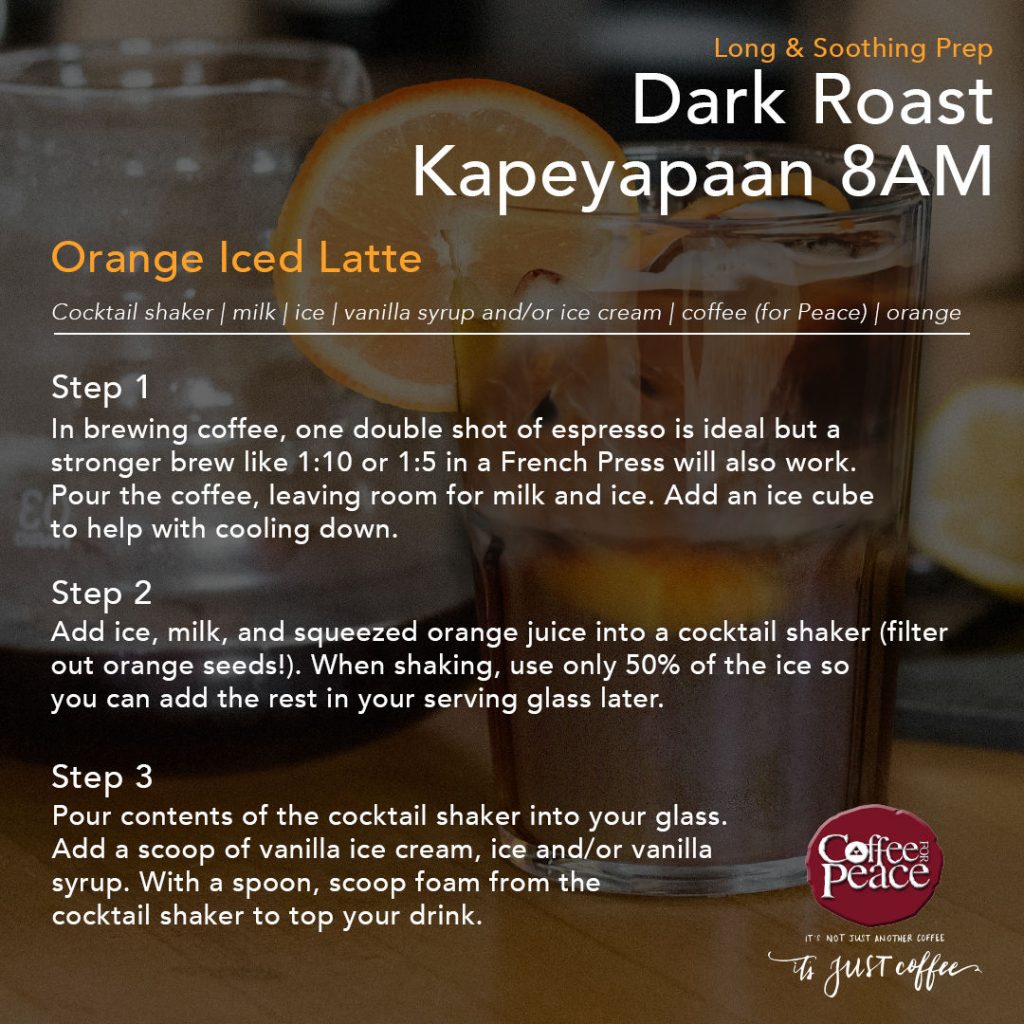Paying forward the gift of peace can be as easy as learning the art of home-brewing your own coffee. That means every Filipino, no matter where they’re based in the world, can source beans that are figuratively grown with conflict-resolution and economic empowerment.
When Davao-based social enterprise Coffee for Peace (CFP) got hit by the pandemic in early 2020, its co-founder and CEO Felicitas “Joji” B. Pantoja was most concerned about taking care of their community of employees and ‘farmerpreneurs’. She knew that, amid temporarily closed cafes given protocols, the key was to continue collaborations to train farmers, produce quality coffee, and enlist Filipinos to buy local.
The recipient of the 2021 Leadership Commitment Award of the UN Women in the Asia and the Pacific, as well as 2020 Oslo Business for Peace Award shares the core principles anchoring them to steady their course to recovery for future social entrepreneurs.
Heart of a Servant
“As peaceworkers in Mindanao, we observed that coffee can be a bridge for getting conflicting parties to sit down and talk. ‘Social’ in social enterprise for us means empathic listening for context—the community’s pains, dreams, and ideas so we can help guide for solutions,” says Pantoja.
Meanwhile, ‘Enterprise’ in social enterprise serves the social mission so that Filipino farmers see the livelihood potential for them. “Together, we explore: ‘what coffee do we have in the country?’ So we learned: Arabica, Robusta, Liberica, Excelsa. Where are they planted? How do we make this sustainable?” For Pantoja, asking the questions and finding the answers together moves the journey forward.
Soul of a teacher
If coffee is the icon for dialogue, it had better taste good. “We don’t round up farmers for a hotel conference, we go to them and observe the processes they’re used to. We converse on what consumers want. We demonstrate different ways of processing coffee, and invite them to taste the difference. We learn from each other,” says Pantoja. Part of the process is encouraging communities to envision themselves in five years. Transformation will not be immediate or a 100% right away, says Pantoja, but the 5 champions out of every 100 students will demonstrate success, and create the next round of interest for learning the craft. As a result, CFP is a growing community of farmers and business owners practicing and advocating inclusive development principles in the coffee industry. “CFP helps farmers to become sellers capable of dealing directly with traders so they can experience the value chain and experiment. In a way, success for us is creating our own competitors,” adds Pantoja.
Mind of a managerTo grow and stay sustainable, be clear on the business plan. CFP allocates 25% of its net profit for its Peace and Reconciliation Teams, composed of volunteers from conflict-affected areas and international volunteers. They are trained in inter-faith dialogue, cross-cultural comms, trauma healing, relief and medical operations.
Pantoja says, “Heart isn’t enough. Admit where you need to skill up. Knowing we cannot meet all the needs of the communities, we collaborate with DTI, DENR, DOST, DA, companies, local and international orgs. Learn from experts in planning, finance, legal, or marketing. Take training and course scholarships.”
Strength of a leader
Pantoja says your social enterprise connects with your personal mission. “As ‘being’ comes before ‘doing’ and ‘having’, ask yourself: “Who am I? What is my purpose? Can I withstand the pressures?” This becomes the compass for saying yes or no, and gives the courage to hurdle challenges.”
Pantoja recalls that when the CFP cafés closed early last year to protect staff and follow government protocols, she was most anxious about providing for employees and keeping partner-farmers inspired. “I took a step back to see how we can best help our enterprise and ‘farmerpreneurs’ rise up. To move the coffee products, we continue to tell the CFP story and the high quality of region 11 and Philippine coffee on our website and social media, to media, at academic and industry conferences, at mall pop-up kiosks. We continue to train farmers on coffee production, and baristas on the art of brewing. Together, we encourage Filipinos to buy local to support the country’s recovery.” Gradually, CFP recaptured 50% then 80% of the income lost during COVID-19. Today, the lift in 2021 sales surpassed pre-pandemic figures and the task is to maintain the growth track to benefit farming communities.
Opportunity in crisis
Pantoja shares that CFP started with 20 farmers and 600 kgs of coffee in 2009. “An Arabica Q Grader in Canada rated our coffee as premium specialty. But we were not ready for the volume needed because as a group of islands, we can only compete as specialty and microlot coffee. We took this as a challenge to grow our farming community but also our private-public network to help provide the equipment for farmers to progress as roasters. The CFP cafes solicit how consumers like their coffee, and now we help farmers supply cafes in Manila and consumers through the online shop.”
But the question and opportunity that Pantoja pose is: “In increasing production, do we send that overseas or serve this to Filipinos instead? Currently, local production only addresses 25% of our country’s appetite for coffee, and 75% comes from overseas.”
Filipinos need to ask for Philippine coffee more. “Recently the Philippine Coffee Quality Competition rated Ilocos Sur Robusta and Arabica from Mt. Apo coffee producers, the latter being CFP-trained, as top-notch. That is also why we train baristas because they speak with consumers to help popularize drinking coffee produced by local farmers. This helps our economy for pandemic recovery now but also shows the way for a younger wave of coffee farmers.”
Filipinos can give peace this holiday season and all-year round. Buy local beans, and brew your own coffee. Give local beans as personal and corporate gifts. Learn about how high-quality Philippine beans are and also how this build peace in communities. “When we buy local, we become indirect social entrepreneurs, part of the value chain that encourages farmers to not just sell green beans but also eventually to progress to selling roasted coffee. This turns farmers into ‘farmerpreneurs’ and encourages their next generations to dream big for themselves and for our country,” says Pantoja.



For more information, visit www.coffeeforpeace.com and peacebuilderscommunity.org. Follow Coffee for Peace at www.facebook.com/coffeeforpeace.
